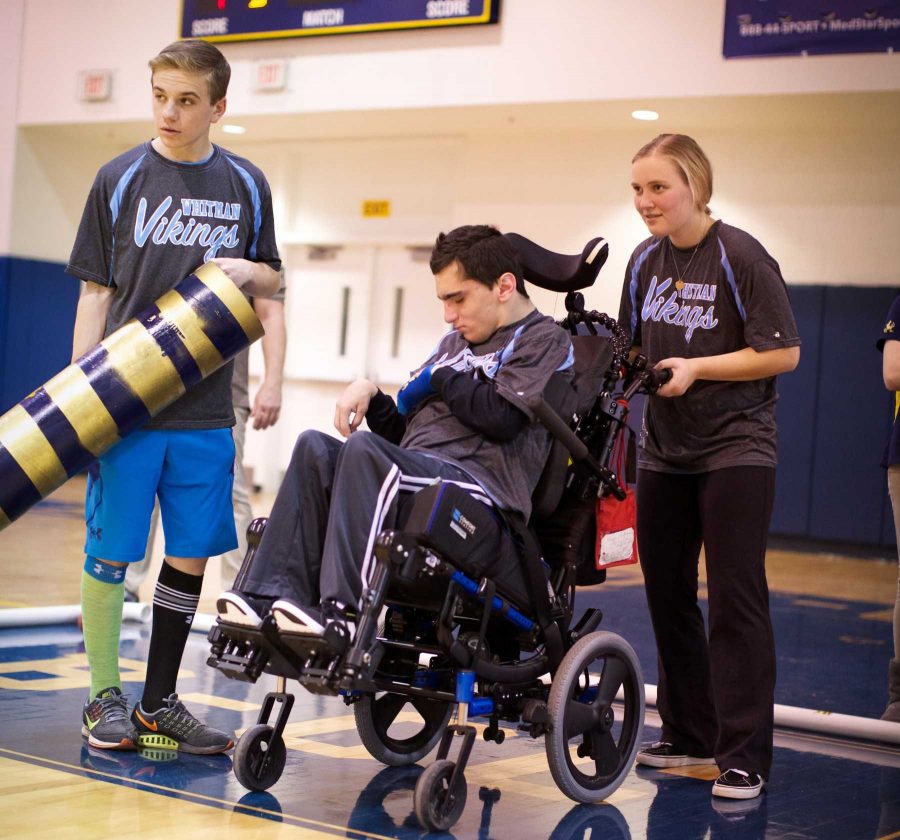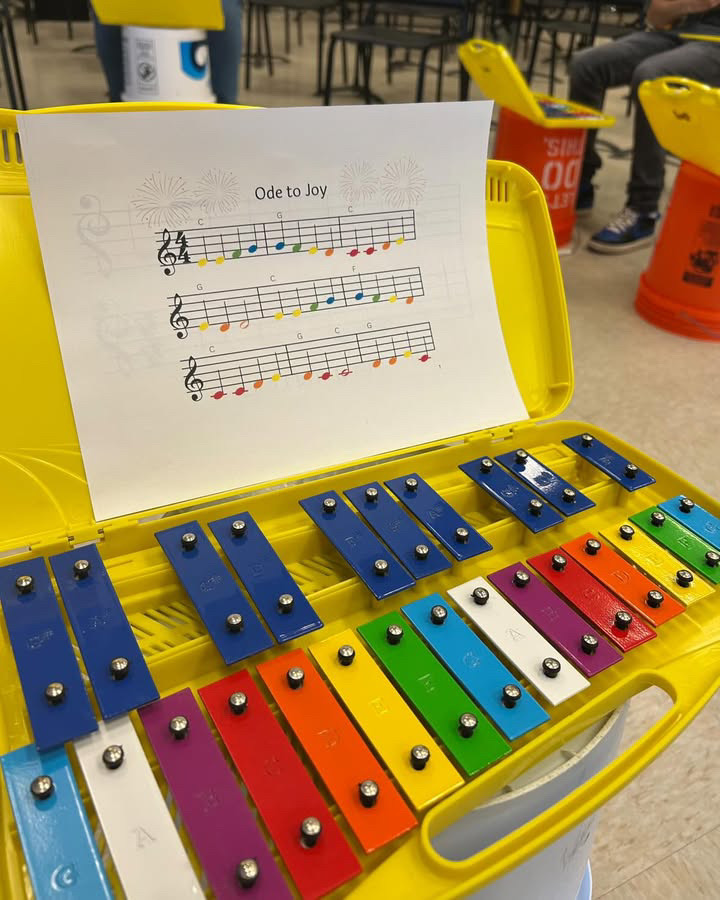Corollary sports level the playing field
The Whitman Bocce program provides athletic experience for students with disabilities. Photo by Sophia Knappertz.
March 15, 2017
Last winter, three varsity sports made the county semifinals: boys basketball, girls basketball and bocce.
Unlike both basketball teams, bocce is a part of MCPS’s corollary sports system, which is designed to give students with disabilities a chance to compete in varsity athletics.
“Our goal is to offer the opportunity to compete in high school athletics to every student in our county,” MCPS athletic specialist Jeff Sullivan said. “The corollary sports system has been very effective in achieving this.”
Beginning in the spring of 2011, the county has offered one corollary sport per season: handball in the fall, bocce in the winter and indoor softball in the spring. Any student can join a corollary sport, but each team aims to have an even ratio of students with disabilities to students without disabilities.
All corollary sports are varsity sports—something that Sullivan said is exclusive to MCPS.
“We take corollary sports to the next level,” Sullivan said. “They are full fledged varsity sports. We give them the same status. We give them transportation. We give them officials, and we give them a playoff system.”
Our main goal is always to offer the opportunity of school athletics to every student at Whitman.
— Whitman corollary sports coach Ryan MullinOf all the corollary sports, bocce has the highest participation rate among the 23 competing MCPS high schools; Whitman’s team currently has 12 members.
“Bocce requires the least amount of motor skills,” Whitman corollary sports coach Ryan Mullin said. “It opens up the opportunity to many more students at Whitman and across the county.”
In traditional bocce and MCPS’s corollary bocce, four players from each team alternate rolling a ball down a track, trying to get it as close as possible to the target ball called the pallina. Corollary bocce’s only modification is that it requires at least two of the four players during each game to be students with disabilities.
Once one player from each team rolls a ball, a point is awarded to the team that rolled closest to the pallina; this is repeated four times for every player in the game. Each game is played to either 16 points or 30 elapsed minutes, and the winner is the first team to win two games.
In corollary softball and handball, students with disabilities often need assistance to compete, as they may be unable to complete all the required motions independently. However, bocce allows disabled students to compete solely under their own power, senior Grace Goldman said.
“In softball if you’re in a wheelchair, then someone is probably batting for you,” Goldman said. “But it’s not quite the same as getting to roll your own ball in bocce and having it be your score on your own.”
After the regular season, every team is seeded and placed into a playoff bracket. This adds more competition to bocce, but the underlying theme for corollary sports remains the same, Mullin said.
“We do care about how we do in matches and root for our players to succeed,” Mullin said. “But our main goal is always to offer the opportunity of school athletics to every student at Whitman.”











